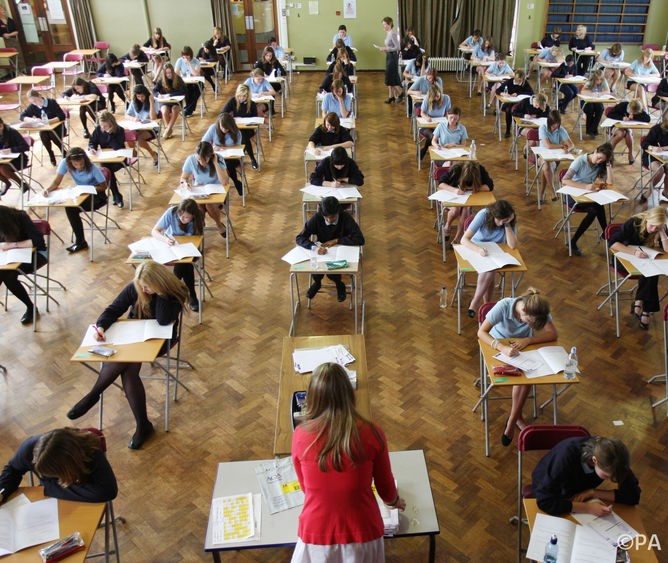By Sheila Mckenzie-
Pupils could sit “mini exams” marked by their teachers in place of cancelled GCSEs and A levels this summer, media reports suggest.
The tests may have to be taken at home if schools are still shut in the summer, to allow a fairer way of assessing pupils.
The news comes as exam watchdog Ofqual’s interim chief regulator highlighted the “reality” that there are “perverse incentives” for teachers assigning grades in place of exams?
Ofqual is expected to announce its plans for alternative arrangements this week, following the cancellation of GCSEs and A levels for the second year running. Such an alternative would be a much better outcome for parents and pupils.
Exam boards are working on putting together “mini” exams for pupils to sit in schools around the summer when it is hoped Covid rates will have declined.
The Sunday Times reports that the tests will be marked by teachers with a sample moderated by exam boards.
Under the arrangements, teachers will set some internal assessments in certain subjects, including an option for children to submit a selection of work from the past two years.
It is a much more preferred option than the plans initially put in place for teacher’s grades based on past assessments.
Meanwhile, speaking to Sky News this morning, Ofqual’s interim chief regulator, Simon Lebus, said “there is a plan B” for this year’s exams.
“My officials and the department spent quite a lot of time last year working that out in detail,” he said.
“But I think [one has] got to recognise it’s a sort of framework in a sense, because plan B as it’s implemented in January is not going to be the same as plan B if it’s implemented because exams are cancelled in May.
“But I think the other thing to recognise is that, at the end of the day, people need to feel that the results are fair and we need to have a proper opportunity to consult with parents, with students, with teachers, with schools, with school organisations.”
Addressing the challenge of addressing disadvantaged pupils, Mr Lebus said: “You would be idle to pretend that’s a straightforward challenge. Clearly, any sort of arrangements do need to take account of the fact we’ve got a very wide range of learning experiences that have to be assessed and evaluated.
“I think there’s going to be a big challenge in terms of making sure that the teacher-assessed grades – the methods we use – encompass that range of learning but, at the same time, I think they have to reflect actual achievement and actual learning. Some people have had an absolutely appalling experience and lost masses of learning – others have virtually been unimpacted.”
And asked if he had any ideas of how to make a fair assessment system, Mr Lebus said: “It’s already been made clear that the system is going to be based on teacher assessment.
“The question then is how you make sure that teacher assessment is relatively consistent across the school network. You’ve got to deal with the reality that there are perverse incentives. There was quite a big grade inflation last year, there’s lots of potential for an even bigger grade inflation this year.”




